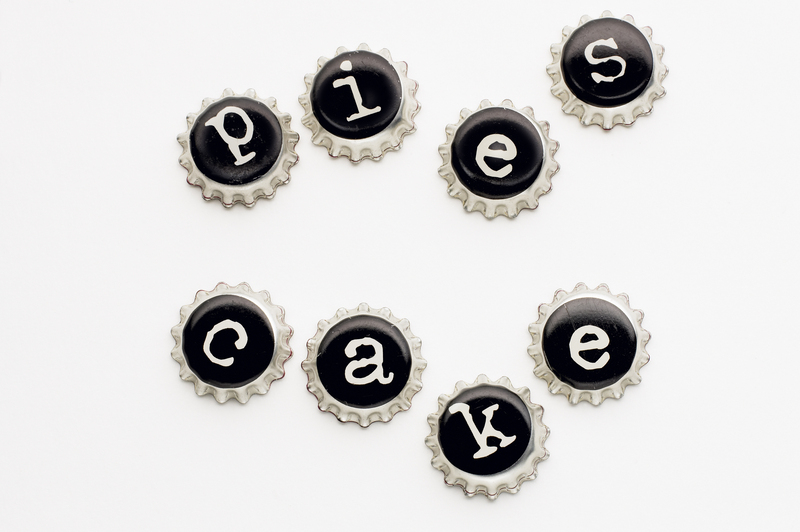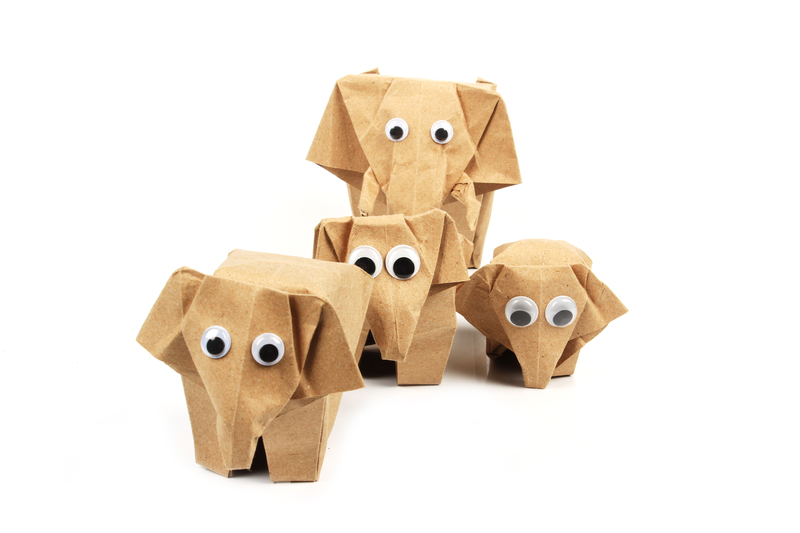Ways to Cut Costs When Getting Rid of Bulky Waste Items
Dealing with large, unwanted items like old appliances, mattresses, or furniture doesn't have to break the bank. Whether you're upgrading your home or just decluttering, removing these bulky waste items comes with its own set of challenges, especially when you want to do it affordably. The good news? There are several cost-effective options and clever strategies. In this article, we'll explore a variety of ways to cut costs when getting rid of bulky waste items that are practical, eco-friendly, and even potentially profitable.
Understanding Bulky Waste Removal and Its Costs
Bulky waste, often called large rubbish or bulk trash, includes any household items that are too large to be disposed of with regular waste collection. Think sofas, beds, white goods, garden debris, or renovation debris. Most municipalities charge more for these pick-ups, and private haulers can be expensive.
The True Cost of Bulky Waste Disposal
- Municipal collection or special pickups
- Private junk removal services
- Landfill tipping fees
- Transportation charges
- Labor costs
- Environmental fees for hazardous materials
Cutting these costs requires some resourcefulness. Let's explore how you can minimize your expenses when dealing with large waste items.

1. Take Advantage of Free or Low-Cost Municipal Services
Most cities and towns offer some form of bulky item pickup. Timing and fees vary, but many provide free or low-cost options annually or seasonally.
How to Utilize Your City's Services
- Contact your local public works or sanitation department for details.
- Ask about scheduled bulk waste days--many areas allow residents to put out large items at no extra charge during certain times.
- Check restrictions: some items (like mattresses or electronics) may require special handling or stickers.
- If you miss the free days, see if there are discounted rates for residents.
Tip: Coordinate with neighbors to put out waste during these free pickups to avoid last-minute costly hauls.
2. Donate Usable Items
One person's trash can be another's treasure. If your bulky waste is still in serviceable condition, donation is a win-win solution--it helps those in need and can save you money on dump fees.
Where to Donate Large Items
- Thrift stores: Many, like Goodwill or Salvation Army, will collect large furniture for free if it's in good condition.
- Charities: Contact local shelters, churches, or community groups.
- Online giving platforms: Post on Freecycle, Facebook Marketplace, or Buy Nothing groups.
Make sure to check donation guidelines before scheduling a pickup, as some organizations only accept certain items or conditions.
3. Sell Your Items Online
Turning your bulky waste items into profit reduces disposal costs and can help offset the expense of new purchases.
Best Online Platforms to Sell Bulky Items
- Facebook Marketplace: Fast, local pickup and no fees.
- Craigslist: Great for almost anything--just be clear about pickup times and item condition.
- OfferUp and Letgo: User-friendly and targeted to local buyers.
Include clear photos, honest descriptions, and be prepared to negotiate. Even items with cosmetic damage can find homes with DIY-ers or upcyclers.
4. Repurpose or Upcycle
Before you dispose of something large, ask: can it be transformed? With a little creativity, you might save money and reduce environmental impact by reusing materials.
Ideas for Repurposing Bulky Waste
- Old dressers can become TV stands, planters, or craft storage.
- Wood scraps and pallets can be rebuilt as garden furniture.
- Sofa frames make unique outdoor benches.
Search online for upcycling projects for inspiration!
5. Share Costs with Neighbors or Friends
If professional junk removal is needed, see if you can split costs. Coordinating with neighbors who also have large waste items can help minimize expenses.
How Shared Bulky Waste Removal Works
- Contact reputable haulers and request a quote for a combined load.
- Organize collection days so everyone's items are ready at the curb.
- Share transportation to the landfill or recycling center if you have a truck or trailer.
Bulk rates or group bookings often result in significant savings.
6. Utilize Recycling Centers
Many recycling facilities accept certain types of large waste items (metal, wood, appliances) at little to no cost. This is particularly true for scrap metal or electronics, which may even be accepted for free due to the valuable materials they contain.
Maximizing Your Savings at Recycling Facilities
- Call ahead to check what materials are accepted and any fees.
- Sort your items--separating metal from wood or fabric can reduce charges.
- Some centers pay for scrap metal, which can offset your costs further.
Recycling is not just cheap--it's environmentally responsible, too!
7. Rent or Borrow a Truck
For multiple or especially large items, renting or borrowing a truck/trailer for a single landfill trip can be more cost-effective than hiring a service.
Truck Rental Tips
- Plan ahead and book during off-peak times for lower rates.
- Borrow from friends, neighbors, or check local tool/rental libraries for short-term options.
- Always factor in gas and any extra fees (insurance, mileage).
Bonus: If you have more space in the vehicle, consider hauling items for family or friends to further split the cost.
8. Break Down Items Yourself
Disassembling large waste into smaller parts can help you save on disposal fees. Many landfills or haulers charge by volume, so squashing or breaking down items reduces the amount you pay.
How to Efficiently Dismantle Bulky Waste
- Remove legs and arms from sofas and chairs.
- Disassemble bed frames, shelving, or cabinets.
- Cut wood or metal down to bundle-size if possible.
Safety first: Wear gloves, goggles, and use proper tools. Review manufacturer instructions if available.
9. Wait for Special Community Cleanup Days
Every year, many cities and homeowner associations organize community bulky waste collection events. These are often either free or significantly cheaper than arranging private pickups.
Utilizing Community Cleanups
- Keep an eye on local announcements or community boards.
- Some events require advance registration or proof of residency.
- Prepare items early so you don't miss out.
Hint: These events are also an excellent time to ask for help with heavy lifting from volunteers or neighbors.
10. Avoid Illegal Dumping: It Costs More Than You Think
Dumping your bulky waste illegally can result in hefty fines and environmental harm. Instead, adopt the strategies above to dispose of items responsibly and avoid unnecessary expenses in the future.
Extra Tips for Saving on Bulky Waste Removal
- Get multiple quotes if you must use a commercial hauler.
- Consolidate pickups: Schedule all waste removal at once to avoid extra trip fees.
- Stay organized: The more prepared your waste is (sorted, accessible), the less time haulers require, lowering your bill.
- Leverage local resources: Sometimes, your city will provide vouchers, discounts, or tip passes to residents.
- Check for rebates: Some utilities offer rebates for recycling old appliances.
The Environmental Aspect of Bulky Waste Disposal
Responsible bulky waste disposal isn't just about saving money--it also helps the planet. Many large household items are packed with materials that can be reused, recycled, or refurbished. Choosing greener disposal methods reduces landfill waste and pollution.
Eco-Friendly Options for Large Waste Items
- Electronics recycling programs prevent hazardous chemicals from reaching landfills.
- Mattress recycling centers reclaim steel and textiles for new products.
- Old appliances are safely dismantled to recover precious metals and minimize environmental risk.
Check your city's sustainability or environmental programs for details.

Frequently Asked Questions About Cost-Effective Bulky Waste Disposal
Is renting a dumpster a cheap way to get rid of bulky items?
Dumpsters are best for large-scale clearouts and can be economical if you have a lot to dispose of or can split costs with others. However, for a few items, it's rarely less expensive than free city pickups, recycling, or selling/giving away your waste.
How do I know if my item is considered "bulky waste"?
Any household item too large for your regular trash bin usually qualifies as bulky waste. Typical examples include furniture, large appliances, mattresses, carpets, and oversized electronics.
Can I make money from my bulky waste?
Absolutely! Selling usable items or scrapping materials like metal, electronics, or certain appliances can yield some quick cash, reducing overall expenses.
What should I do if my city doesn't offer bulky item collection?
In that case, check with recycling centers, donation charities, or nearby towns' services. Private junk removal companies also exist, but review the strategies in this article to keep costs low, such as splitting loads or doing some of the hauling yourself.
Conclusion: Cut Costs and Dispose Smartly
Clearing out bulky waste doesn't have to be expensive. When you combine the smart strategies above--donating, selling, upcycling, recycling, and sharing removal costs--you'll minimize out-of-pocket expenses and do your part for the environment. Start by reaching out to your local services, then look for ways to repurpose, recycle, or safely dispose of your items. By thinking creatively, you can save money, help your community, and keep waste out of landfills.
Ready to tackle your next bulky waste clearout? Use these tips to cut costs and dispose smarter than ever before!